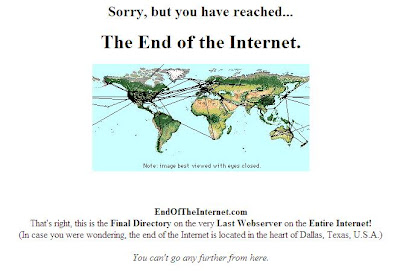An economy which is so broadly dependent upon consumerism must ever be coming up with new things to convince consumers that they want. And those consumers must ever be wanting new things—regardless of how well what they already have works and, far worse, regardless of how this drive toward the "new and improved" sabotages the ability of a community to sustain itself and to care for everyone.
This challenge to sustainability is compounded when we consider public libraries budgets, because the dynamics of public funding have compelled us to shift our focus from "doing library" to "satisfying consumer demand."
It makes sense that libraries should provide what our users ask for. Yet look at the differing connotations of these two words:
- patrons support libraries because they know we specialize in certain information resources and services which they need;
- customers bring shifting expectations, driven by consumerism, and insist that we constantly shift to satisfy those expectations.
We are now trying to satisfy the demands of "digital natives," our most sophisticated, prosperous and privileged customers, those who have moved their lives online. They use handheld devices and laptops, they download files, and they assume that the information they want will be available through social software channels.
Not only are we trying to satisfy these demands, we are promising such services and expanding our computer and Internet networks and offerings, for fear our customers will go elsewhere if we don't—and take public funding with them.
Here's the complication. As I've written elsewhere, the shift online isn't just for those who can afford computers, broadband connections, hand-helds and laptops, and who are fluent online consumers.
Digital refugees, those who do not have and/or cannot afford these devices, and those who lack sufficient computer and online literacy (and perhaps lack more basic literacy—including non-native speakers of English), also must do their most essential personal business online.
One can no longer apply for jobs, one can no longer even apply for unemployment benefits, except online!
In the past two years, we have seen a drastic increase in the number of digital refugees flocking to us for help with personal needs for which they formerly did not need computer access or savvy. All of this at the same time that our digital native customers are looking for sophisticated downloads and Web 2.0 interactions.
Here is the crux of my concern: this increased demand for computers and access and bandwidth is happening just as sources of public revenue are collapsing all around us.
I don't believe that funding is short only because of the economic crash of the last two years, which was driven in part by our unsustainable fantasy that we could grow without limit. It is also increasingly short because of the unwillingness of consumers to pay taxes for public services.
"I want to buy and buy and borrow and buy some more. Don't slow me down with taxes—which are just to take care of other people."
Now we struggle with public library computers and servers and networks—in fact, with a local and regional and national and perhaps global Internet—which are too old and too slow and too limited in capacity to handle the demand.
As a people we've been buying toys and not building sustainable infrastructure. Now, when our culture, our business, even our social safety nets, are wholly dependent upon computers and the Internet, we don't have sufficient public funds to keep up.
I find it reassuring that our local Library Board of Trustees recognizes how essential the technology infrastructure is.
I'm fairly certain our City leaders know this too—though I'm not as confident that they recognize how essential public library technology infrastructure is to the survival of the 21st century community.
A year ago at the annual meeting of the Florida Library Association, a keynote speaker pointed out that, in times of economic crisis, public libraries are first responders.
Clearly, we need to make sure our government leaders and our customers—and those citizens who are not our customers—understand this reality. We need to make sure they fund infrastructure, not just best-selling downloads and online applications.
I think we can do this, but it won't be easy. Americans have long gotten out of the habit of planning and paying for long-term needs.
Let's cross our fingers—and get to work.

No comments:
Post a Comment